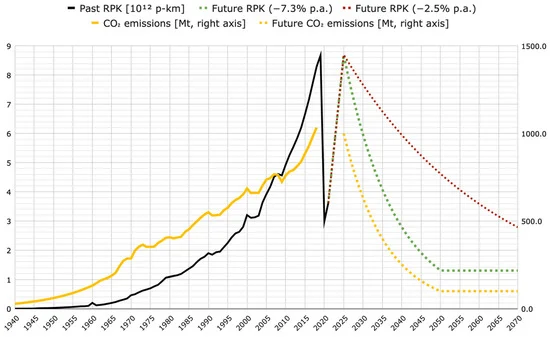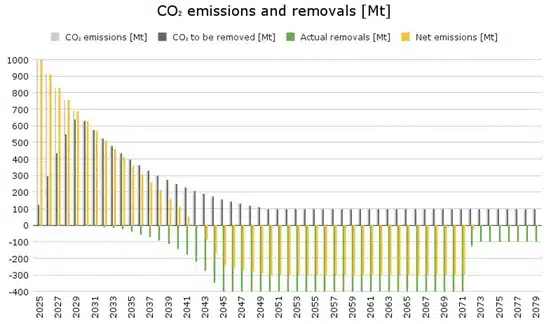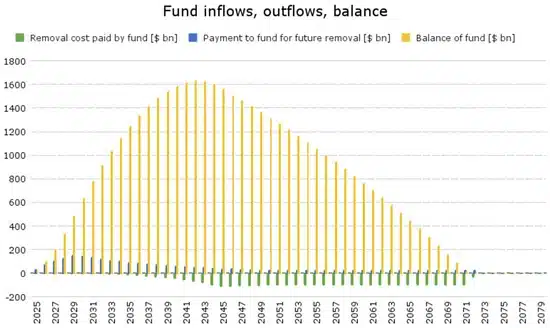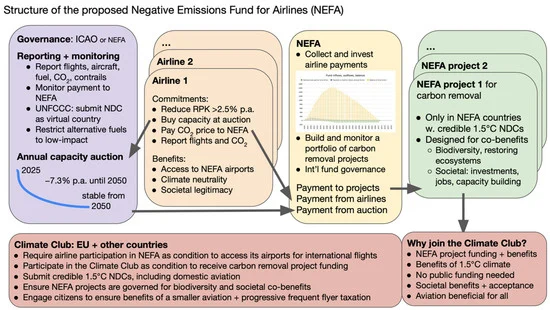BSL Academic Research Updates
Curious about how to bridge generational divides at work?
Our Doctoral candidate Denise Roberson has co-authored and published an HBR article on December 23rd 2022 about that topic:
“3 Strategies to Bridge Generational Divides at Work“
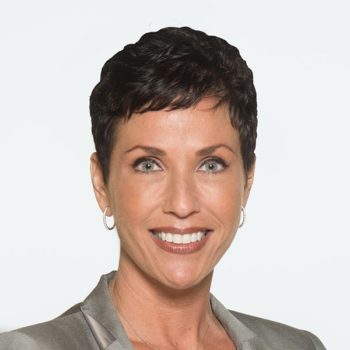
BSL Doctoral candidate Denise Roberson
11.2022
Strategic orientation, innovation, and the effects of entrepreneurial support mechanism in SMEs in South Korea: an application of subject-mechanism-performance congruence model
Kim, S. (2022)

Dr. Sehoon Kim
Abstract
This study investigates the causal relationships among strategic orientation, innovation, and entrepreneurial support mechanisms. Strategic orientation is significant for innovation, and support mechanisms are organizational processes that mediate the innovation generating path. This study hypothesizes that the support mechanism consists of Culture, Structure, Reward, and Procedure and advances the existing theory, exemplifying an SMP (subject-mechanism-performance) framework based on empirical data collected through a national survey for 3,085 SMEs in South Korea. The findings suggest that strategic orientation affects innovation, and tangible interventions such as Procedure, Reward, and Structure might be differently applied from Culture to nurture innovative outcomes of SMEs.
https://www.tandfonline.com/doi/full/10.1080/13602381.2022.2134966
02.11.2022
Congratulations to Prof. Dr. Sascha Nick for his latest co-authored publication titled:
“Towards True Climate Neutrality for Global Aviation: A Negative Emissions Fund for Airlines”
by Dr. Sascha Nick and Philippe Thalmann
Abstract
What would it take for aviation to become climate-neutral by 2050? We develop and model a trajectory for aviation to reduce its CO2 emissions by 90% by 2050, down to a level where all residual emissions can be removed from the atmosphere without crowding out other sectors that also need negative emissions. To make emitters pay for the carbon removal, we propose and model a negative emissions fund for airlines (NEFA). We show that it can pay for the removal of all CO2 emitted by aviation from 2030 onwards, for a contribution to the fund of USD 200–250 per ton CO2 emitted. In our baseline simulation, USD 3.3 trillion is invested by the fund over 40 years in high-quality carbon removal projects designed for biodiversity and societal co-benefits. While we do propose a number of governance principles and concrete solutions, our main goal is to start a societal dialogue to ensure aviation becomes both responsible and broadly beneficial.
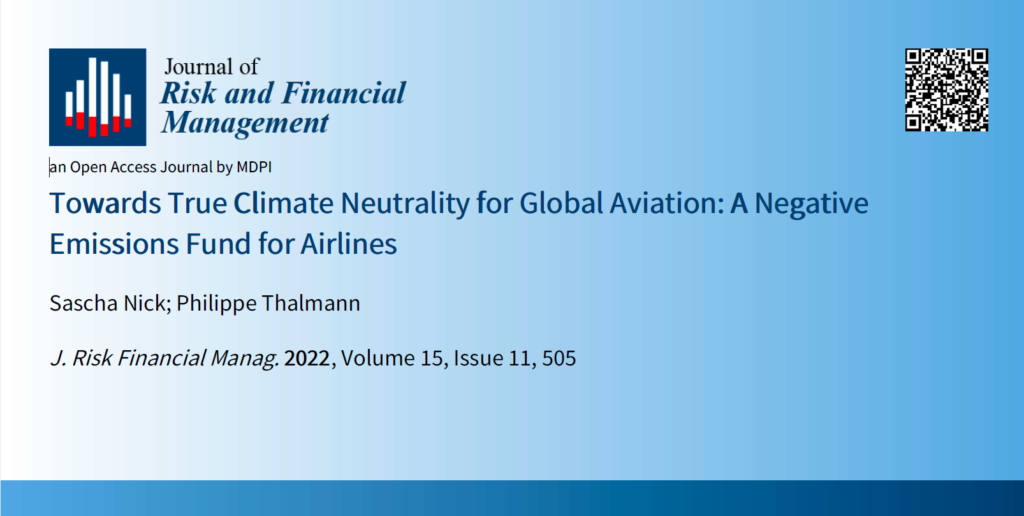
28.10.2022
Congratulations to Professor Dr. Mario Saba for his latest co-authored publication titled:
“The Recursive Theory of Knowledge Augmentation: Integrating human intuition and knowledge in Artificial Intelligence to augment organizational knowledge”
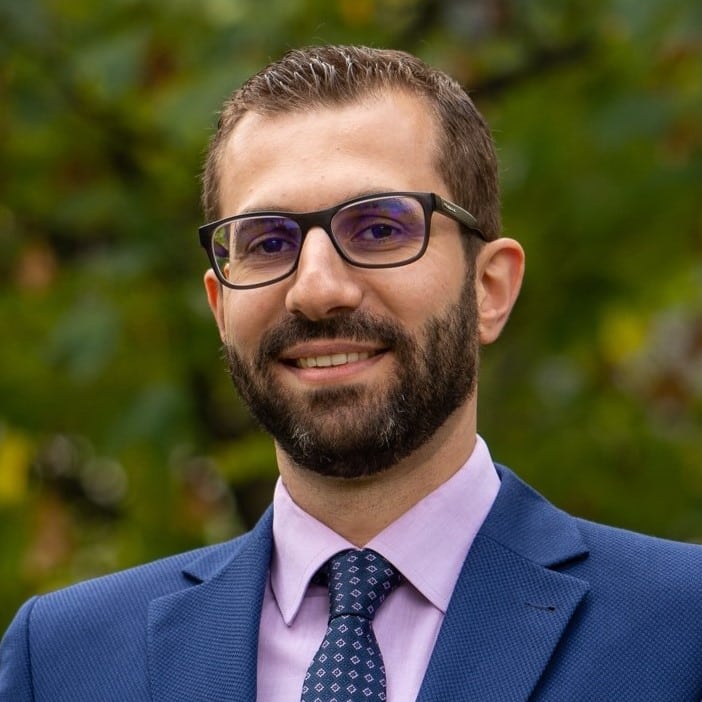
Professor Dr. Mario Saba
Over a period of five years, a European research team in Information Systems including Dr. Mario Saba, Professor and Doctoral Supervisor at BSL, studied the behavior of a prehistoric man who lived in southern France between 600,000 and 90,000 years ago.
Why?
To augment organizational knowledge with Artificial Intelligence.
In this research, published on October 26th in the international journal Information Systems Frontiers (Impact Score: 6.81), they developed a recursive theory of knowledge augmentation in organizations called the KAM model.
It is based on a synthesis of extant literature and a four-year revised canonical action research project. The research project aimed to design and implement a human-centric AI to solve the lack of integration of tacit and explicit knowledge in a French scientific research center.
They offered the possibility to integrate experts’ intuition and domain knowledge in AI in an explainable way. Indeed, their findings show that organizational knowledge can be augmented through a recursive process enabled by the design and implementation of human-in-the-loop IAI.
The article that has been published in the journal Information Systems Frontiers and can be found on Springer since October 16th 2022:
https://link.springer.com/article/10.1007/s10796-022-10352-8
09.2022
A Global Entrepreneurship Efficiency Benchmarking and Comparison Study based on National Systems of Entrepreneurship and Early-Stage Business: A Data Envelopment Analysis Approach
Kim, S. (2022)

Dr. Sehoon Kim
Abstract
National Systems of Entrepreneurship is defined as a nation’s resource allocation structure leading to entrepreneurial behaviors. However, the existing indicators of national framework conditions may have limitations in comparing the entrepreneurial efficiency of countries. Based on institutional theory, this paper presents a model to examine the efficiency of entrepreneurial activities stemming from the given conditions of a country and find benchmarks based on data envelopment analysis by scrutinizing inputs and outputs with static efficiency, dynamic efficiency, and strategic quadrant analysis. For this purpose, the study utilizes the Global Entrepreneurship Monitor dataset from 2015 to 2020 for 24 countries and presents the research questions regarding the differences in global entrepreneurial efficiencies, the countries for benchmarking, and the implications for entrepreneurial activities. The research implications suggest that diversifying the views on entrepreneurial efficiency may be valuable, and policymakers may focus on institutional conditions and entrepreneurial efficiency regarding the activity of early-stage businesses.
https://journals.sagepub.com/doi/10.1177/21582440221123252
01.09.2022
Congratulations to Professor Dr Ganesh Nathan who has just published a new article about the meaningfulness at work:
“Meaningfulness at Work: Wellbeing, Employeeship and Dignity in the Workplace”, published in The IUP Journal of Soft Skills, Vol. 16, No. 2, June 2022, pp. 16-42
Prof Nathan has published several research papers in various topics: ethical innovation and governance, CSR, multi-culturalism, cross-cultural management, global governance etc. Most of the papers can be downloaded freely from researchgate.net and the total reads and downloads have exceeded 30’000 on this platform. Total citations have exceeded 100.

A paper ‘A non-essentialist model of culture: Implications of identity, agency and structure within multinational/multicultural organizations’ from Prof Nathan (2015) published by the International Journal of Cross Cultural Management has been widely read.
We recommend reading the above paper “A non-essentialist model of culture” that counts more than 20’000 reads on reasearchgate.net.

26.08.2022
Professor Doctor Erdal Atukeren becomes an Editorial Board Member of journal Springer Nature
Professor Dr. Erdal Atukeren has become an Editorial Board Member of the journal “Springer Nature: Business and Economics (SNBE)” upon invitation. Professor Dr. Atukeren will be an associate editor for several papers per quarter.
Dr. Erdal Atukeren, teaches at:
- Swiss Business School (SBS)
- University of Applied Sciences Institute
- Business School Lausanne (BSL)
Professor Dr. Atukeren has also become a Guest Editor for a Special Issue of the MDPI journal “World”. The theme of the Special Issue is: “The World under COVID-19: Innovation, Risk and the Challenge of Global Economic Development”.
Special Issue “The World under COVID-19: Innovation, Risk and the Challenge of Global Economic Development”
A special issue of World (ISSN 2673-4060).

SciProfiles – Guest Editor
1. SBS Swiss Business School – University of Applied Sciences Institute, CH-8302 Kloten (Zürich), Switzerland
2. BSL Business School Lausanne, CH-1022 Chavannes (VD), Switzerland
Interests: macroeconomics; applied econometrics; energy economics; economic development; sustainability; art markets
Special Issues, Collections and Topics in MDPI journals
Share This Special Issue
Dear Colleagues,
We are organizing a Special Issue entitled “The World under COVID-19: Innovation, Risk and Challenge of Global Economic Development” of the journal World, which is a multidisciplinary and open-access journal devoted to past, present, and future links between economic, political, social, and/or environmental issues. More information about the journal can be found at https://www.mdpi.com/journal/world.
The COVID-19 pandemic has caused changes in the social, technological, economic, environmental, political, legal, and ethical environment (STEEPLE) of societies and businesses to varying degrees. The pressing global challenges of digital transformation, climate change, and meeting the Sustainable Development Goals (SDGs) took on a new dimension under COVID-19. As an unanticipated shock, the COVID-19 pandemic put economies and societies under much stress and brought about further discussion and research, not only in risk management but also in innovation management areas, such as open innovation. A key concept to emerge from the COVID-19 experience is the degree of “resilience” in the systems.
This Special Issue aims to publish findings and observations regarding the relationship between the COVID-19 pandemic and global development with a focus on risk management, innovation management, and resilient systems in areas covering, but not limited to, the following: economic development; SDGs; sustainability; finance; economics; strategic management; supply chain and logistics, marketing and advertising; organizational behaviour; human resource management; labor economics and industrial relations; project management; tourism and hospitality; health services, public health; education; resource and environmental economics, and cultural economics.
We encourage the submission of notes, reviews, original research articles, empirical studies, conceptual papers, short communications, systematic reviews, and case studies targeting any of the above areas, and especially the papers related to the experience of COVID-19 for developing countries .
Prof. Dr. Erdal Atukeren
Guest Editor
14.08.2022
Welcome Message from the Scientific Director and Program Administrator from BSL-aSSIST Dual Doctoral Program
Dear BSL-aSSIST Dual Doctoral Program Students:
안녕하세요! I welcome you to the BSL-aSSIST Dual Doctoral Degree Program in Business Administration. As the Scientific Director and the Program Administrator of the BSL-aSSIST Dual Doctoral Degree Program on the BSL side, I will be your main contact person at BSL Business School Lausanne.
The BSL-aSSIST Dual Degree Doctoral Program in Business Administration is unique. In addition to obtaining a Ph.D. degree from aSSIST, Seoul Business School, you obtain a Doctor of Business Administration (DBA) degree from BSL upon successful completion of the degree requirements. The DBA program at BSL is designed to combine your many years of high-level professional experience with academic rigor and research to provide novel solutions to business problems at the industry level.
The BSL-aSSIST Dual Doctoral Degree Program offers many opportunities for students to meet and interact with BSL faculty and with other students in the program. BSL organizes Doctoral Acceleration Weeks (DAW) twice a year – in May and in November. During the DAWs, you can present your work-in-progress, listen to other students’ presentations and learn from the feedback they get, and follow lectures by BSL faculty on various aspects of the doctoral research and thesis writing process. Participation in DAWs is voluntary and not mandatory, but it is highly recommended to make the most out of your doctoral studies and research. You can attend the DAWs in person at BSL or online. Some of your fellow students from previous intakes took this opportunity to visit Switzerland and have face-to-face meetings with their BSL Supervisors and Faculty in addition to establishing personal or business contacts with other students in BSL’s DBA program.
I thank you again for choosing the BSL-aSSIST Dual Doctoral Degree Program in Business Administration to advance your professional career with rigorous academic research that will bring novel industry-level insights and transformation prospects. I wish you all the best and much success during your studies and in your doctoral research.
Kind Regards.
감사합니다.
Dr. Erdal Atukeren
Professor & Scientific Director and Program Administrator, BSL-aSSIST Dual Doctoral Degree Program
07.2022
Corporate risk and greenhouse gas emissions: evidence from Korea
Sang Joon Kim & Hohyun Kim (2022)

Dr. Sang Joon Kim
Abstract
Concerns regarding climate changes and greenhouse gas (GHG) emissions have been growing in recent years. Nonetheless, firms are claiming their business burdens in GHG reduction. This study examines whether and how corporate risk is associated with GHG emissions. The previous literature suggests two opposing hypotheses regarding the association. Firms may invest in environmental issues only when firms do not face severe risks in the market. In contrast, environmental efforts could be made strategically to win market competition. By using a firm-level GHG emission dataset in Korea, we find that firm- and market-level risks are positively associated with GHG emissions, supporting the former hypothesis. This result is robust to several measures of corporate risks and GHG emissions. This study provides policy implications related to GHG emissions reduction.
07.2022
Innovating workplace learning: Training methodology analysis based on content, instructional design, programmed learning, and recommendation framework
Kim, S. (2022)

Dr. Sehoon Kim
Abstract
The quality of sales processes is crucial in automotive and directly related to the firm’s competitive advantage and financial success. Sales training is the most prevalent intervention to guarantee quality and productivity. Extant literature has attempted to measure training effectiveness adequately, and the Context, Input, Process, and Product evaluation (CIPP) model has been a popular approach. This study endeavored to advance current literature and suggest a novel effectiveness framework, Content, Instructional design, Programmed learning, and Recommendation (CIP-R). The framework was applied to examine three different methodologies-traditional, pure digital, and hybrid training-collecting 583 instances from the automotive sales training conducted from 2019 to 2020 in South Korea. The findings advocate the importance of human elements, the role of efficacy, and self-determination in generating learning transferability, leading to performance in the digital age.
17.06.2022
DBA Graduate: Dr. Corlea Human
Dr Corlea Human has been working on how to TRANSFORM SOCIAL ENTREPRENEURIAL ORGANISATIONS (SEOs) TO ERADICATE EXTREME POVERTY SUSTAINABLY IN SOUTH AFRICA.
The purpose of the Thesis Dissertation was to determine how social entrepreneurial organizations (SEOs) can commit to sustainability while contributing to the eradication of extreme poverty.
To answer this main question, The focus of the research was to answer three sub questions questions:
- of which the first is to resolve how SEOs can use social business model innovation to address poverty and the impact on the environment.
- The second is to determine the role that alternative financial instruments can play in the sustainable generation of revenue.
- The third is to establish what kind of institutional governance structures would enable SEOs to operate sustainably.
This question is close Dr. Human’s heart and is related to her personal experiences of societal injustices and capitalistic agendas in South Africa.
Beyond the south African context, Dr. Human’s Thesis will provide transferrable answers and solutions to all entrepreneurial organizations working on the eradication of extreme poverty.

05.2022
Critical Success Factors Evaluation by Multi-Criteria Decision-Making: A Strategic Information System Planning and Strategy-As-Practice Perspective
Kim, S. (2022)

Dr. Sehoon Kim
Abstract
Strategic information system planning (SISP) is a central process that enables organizations to identify the strategic alignment of their IT portfolio to achieve their business needs and objectives. The extant SISP literature has focused on theoretical and processual aspects and has left methodological ambiguity about how SISP is practiced. This paper contributes to the current knowledge by providing a mixed-methods SISP framework labeled CSF-MCDM for company-wide strategic alignment. The paper conducts a methodological synthesis, embracing an expert-based qualitative approach based on a PEST-SWOT and causal layered analysis to draw the critical success factors of a next-generation business system for an automotive company in South Korea. The derived CSF dimensions and sub-criteria are evaluated by the multi-criteria decision-making model, engaging a strategy-as-practice lens to SISP to enable an integrative analysis of IS strategy formulation, planning, and implementation. The findings reveal the relative strategic priorities of dimensions, the following core activities, and the global priorities for resource distribution planning for IS strategy of the firm. This paper argues that bringing replicability with SISP and diversifying methodological approaches within the organization is substantial. This paper also suggests that future researchers validate the suggested framework for scientific replicability and expand the SISP research stream within the entire IS/IT ecosystem.
06.05.2022
BSL’s Professor Patrick Rose publishes article with Frontiers Media SA
Professor Dr. Patrick Rose published the article “The Tug-of-War Over Truth: A Foucauldian Case Study on the Interplay of Competing Discourses in Education” as a part of the Research Topic “Leadership, Organizational Stressors, and Employee Work Attitudes in Educational Organizations” with Frontiers Media SA, a publisher of peer-reviewed, open access, scientific journals currently active in science, technology, and medicine.

Professor Dr. Patrick Rose
Introduction
The present study applies a Foucauldian critical analytic to investigate competing discourses in education that are shown to be present in one public high school in the southern part of the United States. It is revealed how these discourses intersect and collide with each other to reinforce certain values, principles and practices, but eventually loosely coalesce along with other social interactions into general rules and social norms within the high school. It is found that technology itself represents a separate competing discourse with its own set of unique truths, goals, language and tools that both overlap and challenge other dominant discourses. Foucault’s concepts about power and governmentality provide the deductive design for data interpretation. Teacher and school administrator retellings are examined for signs of structures of thought and discursive truths that characterize ways of thinking that represent opposing points of views about the role of technology in education and its effect on defining the “right” way to teach. A framework is proposed for understanding and comparing the discourses based on their differing views of technology.
14.04.2022
DBA Graduate: Dr. Grace Lin Xu
Dr Grace Lin Xu has been working on the creation of An Integrated Framework of Personal & Organizational Perspectives for Employee Well-Being in the Chinese Workplace.
Little is known about the well-being of employees in China and how to address the issue within the unique context of Chinese organizations. Yet, there is evidence that the well-being of Chinese workers is poor compared to their counterparts in other countries and this represents a critical business issue for China.
Many studies have shown that low employee well-being negatively impacts companies in terms of employee burnout, absenteeism, depression, anxiety, ill health, and lost productivity.
Unlike in many other countries where the importance of employee wellbeing is widely recognized as needed for maintaining a productive environment, only a few leading Chinese companies have taken significant steps to address the challenges of this concern.
The aim of the research is to develop a holistic framework composed of proven well-being strategies that are appropriate to the China context.
To develop this framework Dr. Grace Lin Xu had to answer several key research questions:
- What are the key categories for employee well-being in China?
- What can employees do for their well-being in the workplace in China?
- What organizational policies can companies implement for their employee well-being in the Chinese workplace?
- Is it essential for both personal efforts and organizational policies to combine for employee well-being in the Chinese workplace?
- What might be an implementable approach of the framework for employee well-being in the Chinese workplace?
Dr. Lin Xu’s Thesis will provide transferrable answers and solutions to Chinese companies effectively guiding the company decision-making for implementing employer-sponsored wellbeing programs.

01.02.2022
DBA Graduate: Dr. Sehoon Kim
Dr Sehoon Kim has been working on the central topic of business model transformation in the automotive industry with the following title: Business Model Innovation for Digital Dealership in the Korean Automotive Industry: Key Resources, Key Activities, and Channel Perspectives.
Dr. Sehoon Kim’s research focuses on the three main building blocks of the automotive retail business model, Key Resources (KR), Key Activities (KA), and Channels (CH). Dr Sehoon Kim has answered to questions in each of those building blocks.
Here are the questions that have been driving Dr. Sehoon Kim’s research:
- KR What is the performance-creating mechanism of fieldwork teams of automotive retailers?
- KR What are the human resource development implications for the future dealership?
- KA How does digital technology drive the business activities of traditional auto retailers?
- KA What are the possible scenarios for key activities of the future dealership?
- CH What factors should be considered for future channels of auto retailers?
- CH What are the implications of order fulfillment modes for digital auto retailing?
The Thesis Dissertation suggests a model for strategic management that aligns the external environment and internal resources leading to a business model innovation that would transform the existing auto retail model into a digital dealership of the future.
Dr Sehoon Kim’s research presents a distinctive approach to generate sustained competitive advantage within a traditional industry under the digital era. It also presents practical implications for digitalizing the existing business under a rapidly changing environment and contributing to the existing knowledge.
Dr. Sehoon Kim’s research is focusing on business model transformation of the existing auto retail model to transform it into a digital one and will thus be transferable by provide theoretical and managerial real-world business transformation suggestions for automotive retail in South Korea.

Published Scientific Papers from our DBA Candidates
Kim S., Connerton, T. P., & Park, C. (2022), Transforming the Automotive Retail: Drivers for Customers’ Omnichannel BOPS (Buy Online & Pickup in Store) Behavior. Journal of Business Research, 139, 411-425
Some of BSL DBA Faculty Publications
Ganesh Nathan (2022). Meaningfulness at Work: Well-being, Employeeship and Dignity in the Workplace, Available at SSRN: https://ssrn.com/abstract=4101517 or http://dx.doi.org/10.2139/ssrn.4101517
Guy Major Ngayo Fotso (2022). Differences Between Senior Human Resources Managers and Young Millennials Leaders on the Perceived Required Leadership Competencies for the 21st Century, The Journal of Human Resource Management, 2022; 10(1): 5-13
Guy Major Ngayo Fotso (2022). Exploring Intra-generational Differences Among Young Millennial Leaders on the Perceived Required Leadership Competencies for the 21st Century, The Journal of Human Resource Management, 2022; 10(1): 14-21

